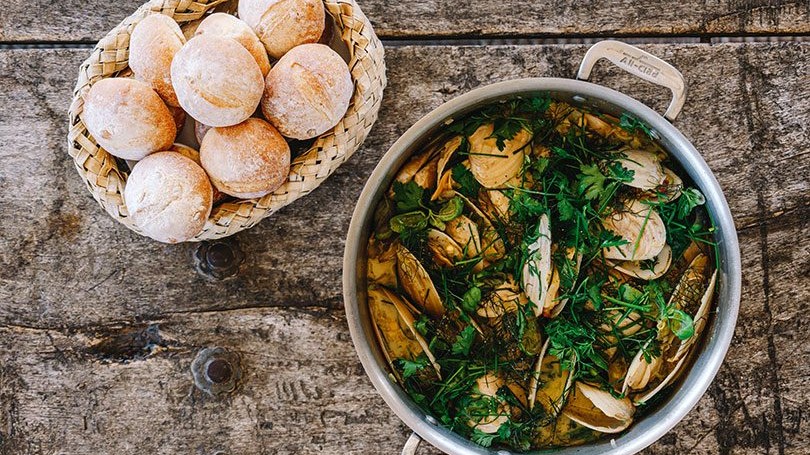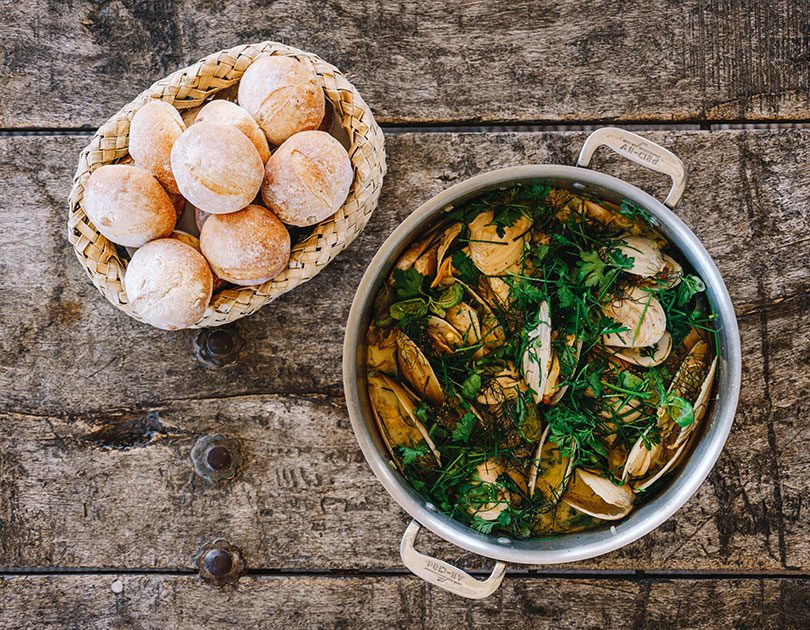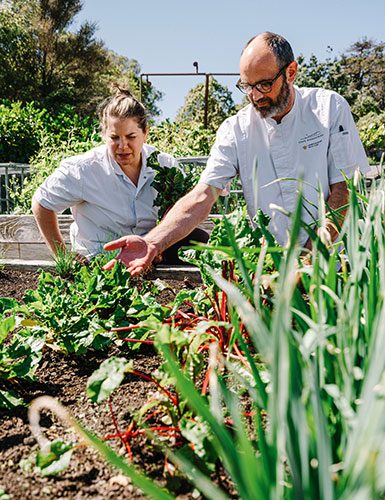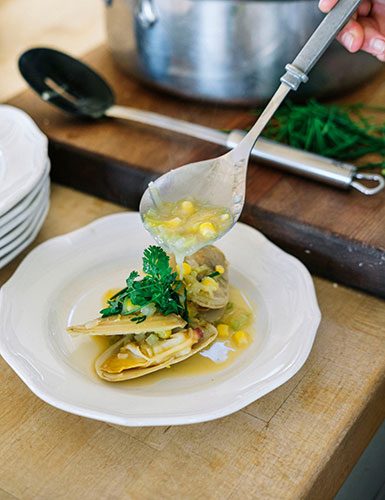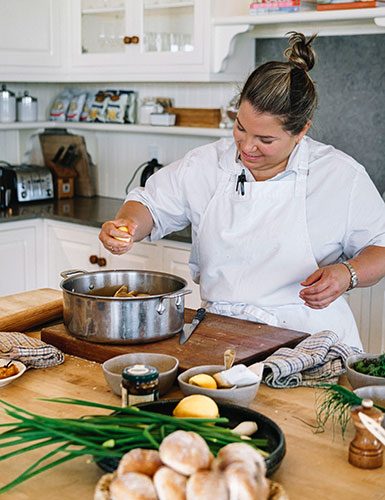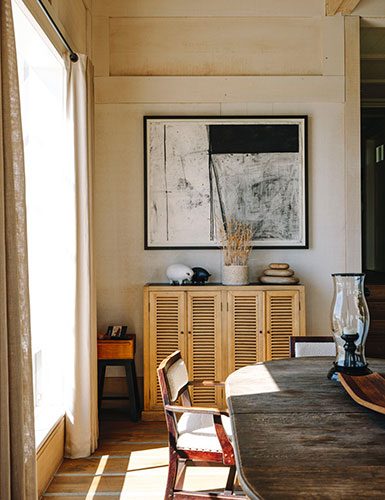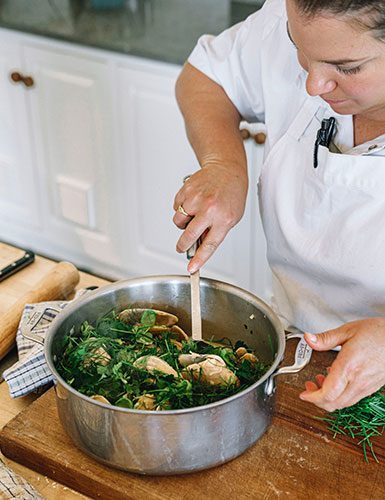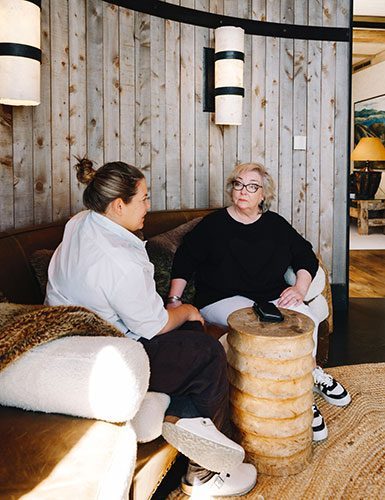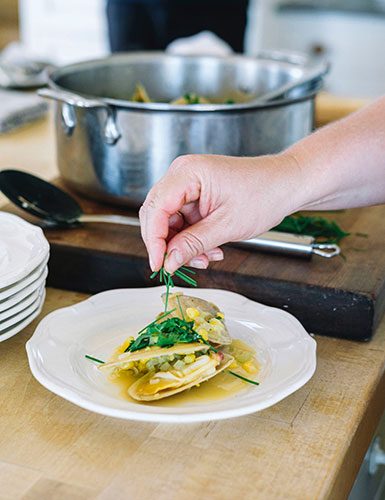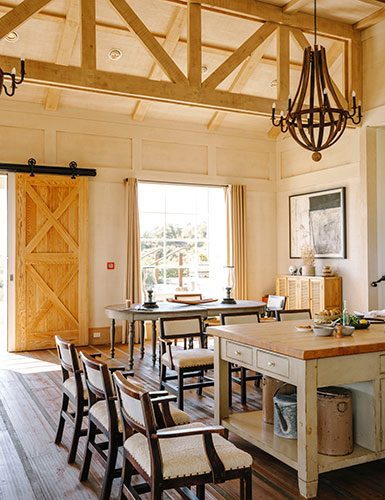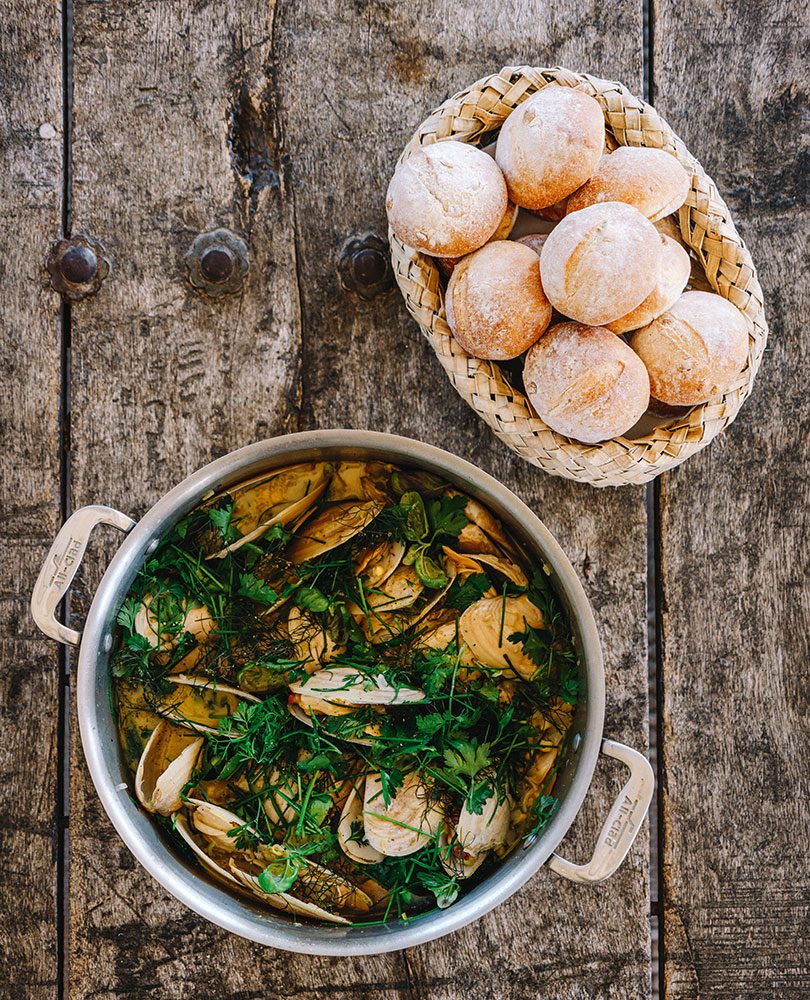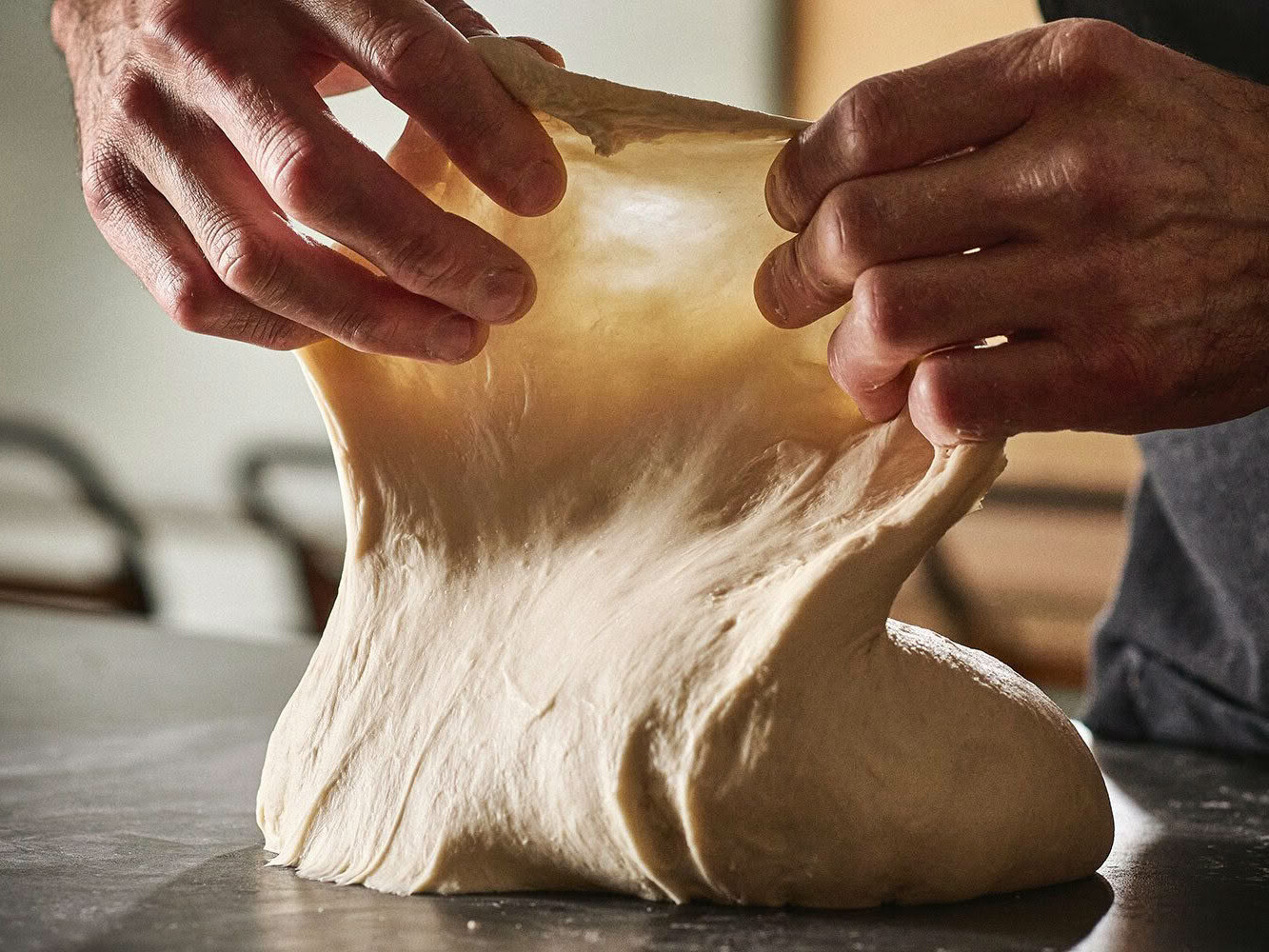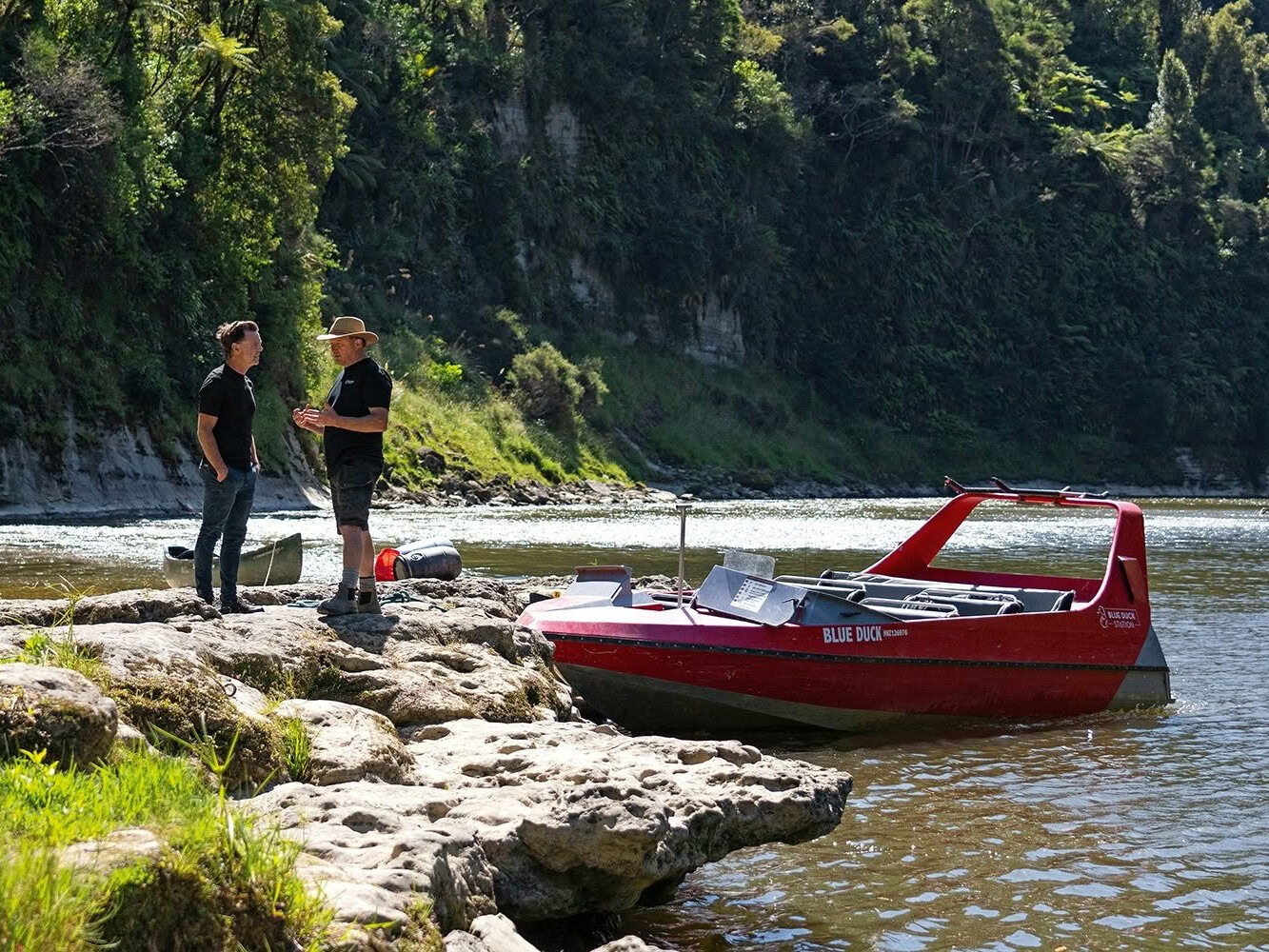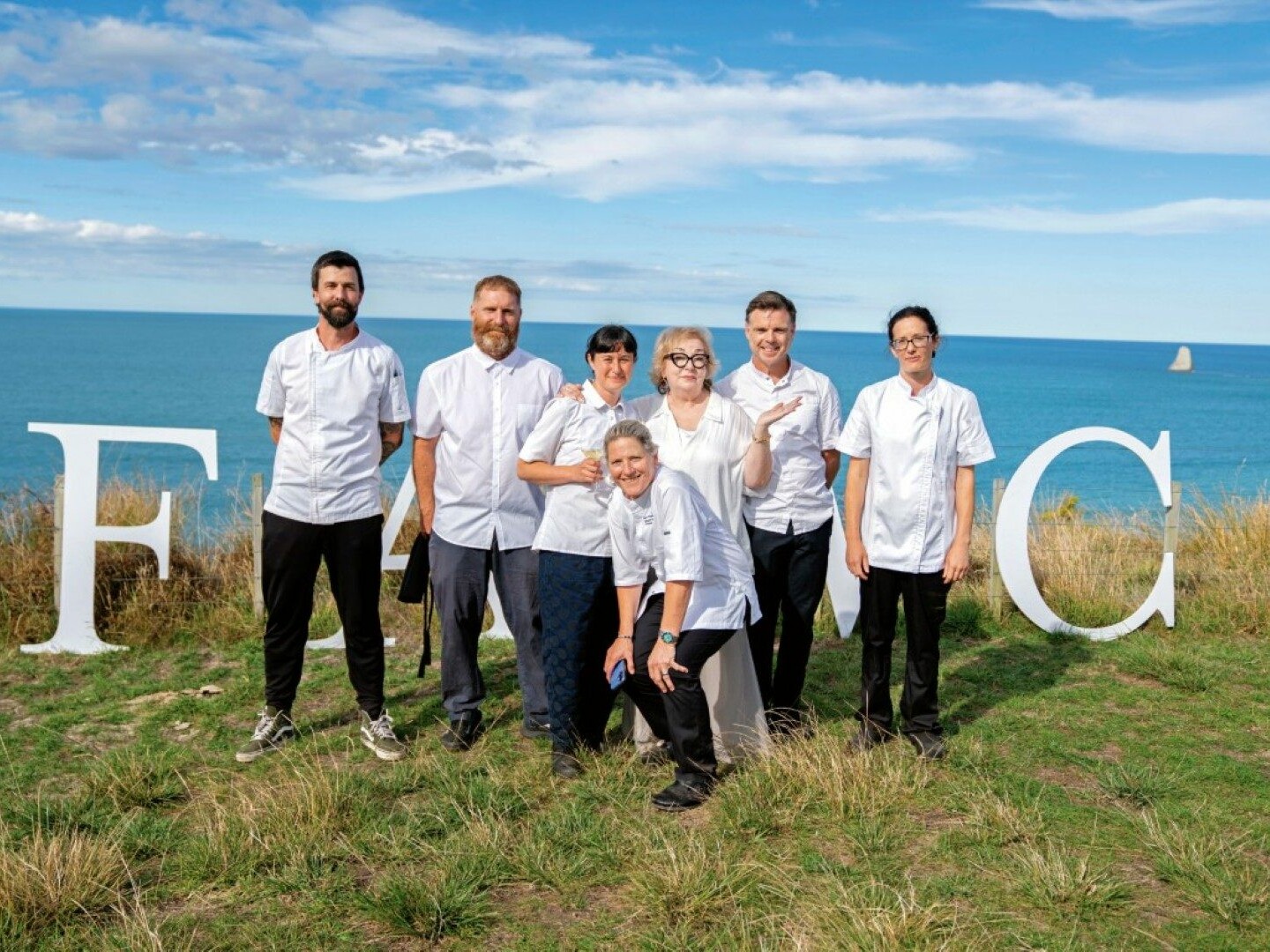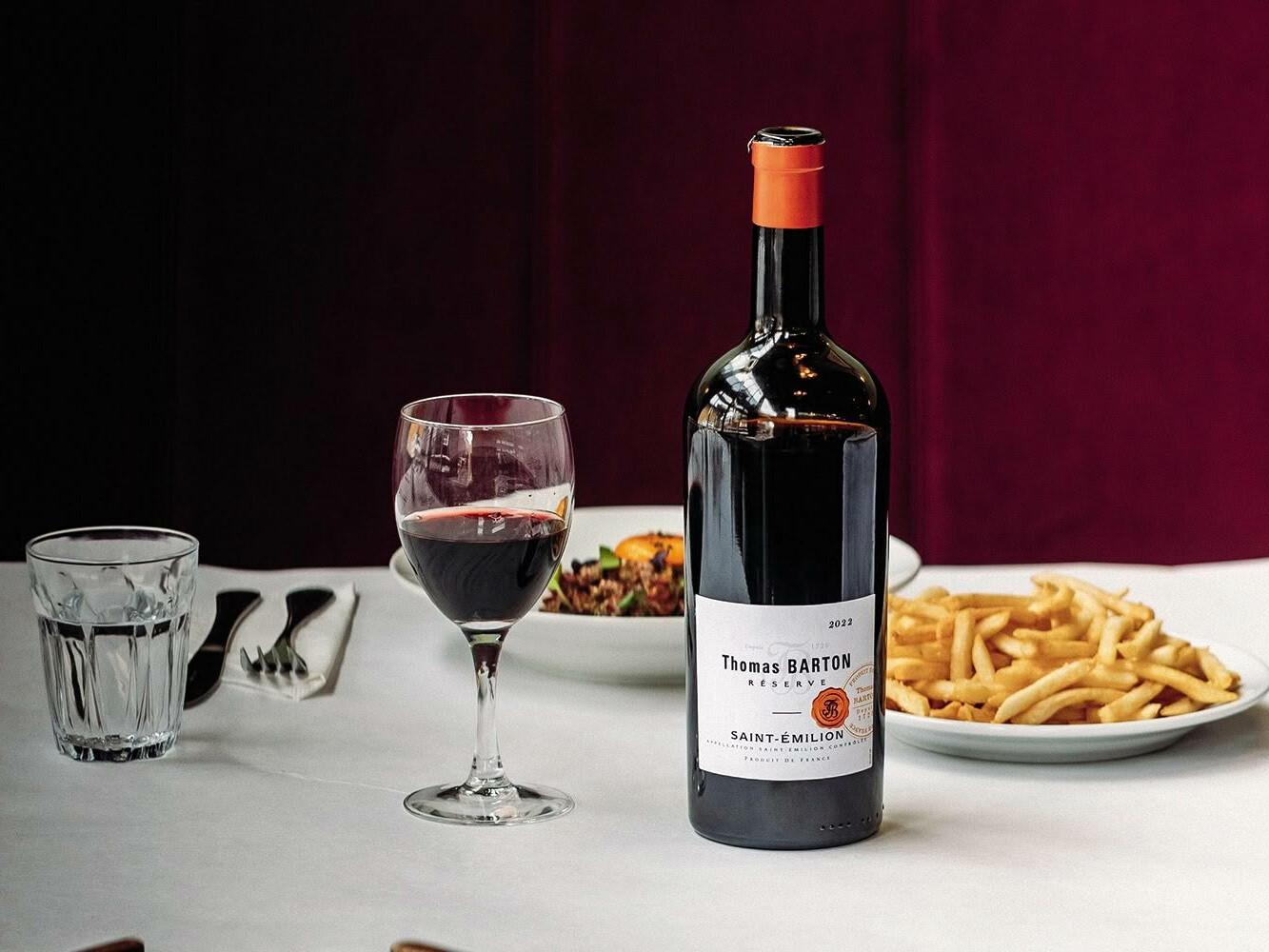I had been scratching my head wondering where the hell she had gone and so as the big news hit my desk that Danielle Alvarez would be taking the stage as culinary director at the Sydney Opera House event venues, I felt a burst of pride for this Miami-born-turned Aussie chef who had spent nearly six years at the head of the acclaimed farm-to-table restaurant Fred’s in Paddington. Danielle had been the driving force behind Fred’s, achieving and retaining its two-hat status by telling a local story of sustainability and seasonality that quickly became a must-visit for any serious diner when in Sydney.
This announcement coincided with the imminent release of Danielle’s book Recipes for a Lifetime of Beautiful Cooking, so an opportunity to see her in action at Rosewood Cape Kidnappers in the beautiful Hawke’s Bay was one that Cuisine could not refuse. The clever team at this spectacular luxury resort is to be applauded for its yearly calendar of outstanding events. In particular, this event provided an opportunity to taste firsthand this exciting chef’s ability to recognise the unique flavours of the region and – working alongside head chef James Honore – to create a menu that would allow New Zealand to shine while being definitively Danielle.
How special to be included in the workshop when Danielle recreated her recipe for beer-steamed clams with corn, miso and chilli using our wonderful New Zealand ingredients and to be able to share it with you (see recipe). It was also an opportunity to put a few questions to a hospitality leader who can provide inspiration and motivation for all women considering a career in food and drink.
I wondered how important Danielle’s early influences had been in the shaping of her career. Born in Miami and growing up at the table of a food-loving Cuban family with a food-obsessed mother and grandmother, it is understandable that eating and feeding people was a major focus. After culinary school she worked with some heavy hitters, landing first at Thomas Keller’s French Laundry in the Napa Valley and then Boulettes Larder in San Francisco, but it is her four years at Chez Panisse in Berkeley, California that she credits as having had the most profound effect on her.
“Alice Waters built that restaurant over 55 years ago. I think of her as the mother of farm-to-table cooking in the US and we all owe her a lot for her uncompromising view about food. She inspired a movement to use ingredients that are sourced locally, to cook organically as much as possible and to ensure that the food that we take out of the land is also giving back to the land to nurture the soil. She is a master at getting people to make personal change through the flavour of her food,” says Danielle.
Alice’s approach in the professional kitchen was completely different to what Danielle had encountered before, teaching her to work in a very collaborative way. Through her extensive travels Danielle has learned that ingredients present differently wherever she cooks and she understands the importance of being flexible and receptive to what is going on around her. “I like the thought of collaboration in my kitchen and for everyone to bring what they know and what they think to the table. They learn, I learn and that’s how I like to run a kitchen when I’m in charge.”
In Australia Danielle was defined by her work at Fred’s and the decision to walk away was a hard one to make. She tells me that to this day she still feels such a personal connection to the restaurant that, when forced to drive through Paddington, she will go around it to avoid crossing in front.
“It was a really formative time for me, moving from the States to Australia with the Merivale Group. A few days after I made the move I found out that my brother had stage four cancer. For the next two years, the restaurant was being built and I was travelling back and forth and pouring every ounce of energy into it. He passed away on August 14th 2016 and we opened the restaurant on October 13th, just two months later. In a way, I’m so grateful to have had that project to funnel all of my energy into because without it I don’t know what would have happened to me. I think I worked for the next six years while exorcising that grief; I needed to go somewhere positive because that’s what he would have wanted.”
When she decided to leave, she was exhausted but felt ready to branch out and do things on her own. Danielle’s home kitchen became a restorative place for her and so all of her cookbook writing happened there during that first year away from Fred’s. As for leaving behind those two prestigious Good Food Award hats, she remembers them as a double-edged sword. “When it first happened it kinda scared me and I didn’t really want the pressure. I just wanted to make nice food and didn’t want to have to be afraid of losing the hats once we had gained them. The awards are ultimately about showcasing teams that are doing cool and interesting things. So I accepted the recognition as a nice thing, as great encouragement for my team, but stressed that it shouldn’t define us. We should be proud of what we do regardless.”
The conversation turned to equal opportunity within the hospitality world and Danielle’s own experiences in what is still – unfortunately, but for myriad complex reasons – a male-dominated space. Interestingly, she does not feel that she has ever been held back professionally as a woman. “I think that’s because I have worked for amazing women who never made me question my ability. I’ve never stopped to question whether I deserved any less than a man. However, it is very important that we hold senior roles because it is all about visibility.” Generally speaking, worldwide she thinks that women are held back from senior positions in all types of business and that there is still an element of the boys club. But with the current situation in hospitality and staff shortages, she doesn’t think you’ll find men taking roles away from women. “We just want people who are passionate about the industry. I think the best kitchens have a healthy mix of the right people.”
The time seemed right to put to Danielle my fears about the value, or lack of it, of New Zealand’s food story, the perceived worth of our food in general, the lack of understanding of how much a restaurant really costs to run and the drop in interest in hospitality as a viable career. Her response is, of course, tapered by the lasting effects of a virus that had a massive effect on her industry.
“For a long time the industry had operated on such slim margins that the customers got used to paying a certain price. The pandemic forced us to re-evaluate what we were doing. Did it make sense to work this hard for next to nothing? The crazy thing is people want to dine out more and more so we must encourage careers in hospo and make the industry look attractive for young people. Working for good people and good operators is important. Find outstanding leaders, whether they are male or female. Work for people who create nurturing environments, who don’t tolerate bad behaviour and who want to allow you to learn and grow. I’ve been visiting New Zealand for a few years now and I see so much potential with lots of cool new things evolving. Restaurants define and shape our societies, it’s a cultural thing and New Zealand is coming into its own.”
Kelli travelled to Hawke’s Bay courtesy of Rosewood Cape Kidnappers. For more information on the magnificent Rosewood hotels and resorts see rosewoodhotels.com
SEE MORE FROM CUISINE
Flight of The Blue Duck
Dreams and determination have created a unique dining experience on a…
A magnificient table & A story of place
The world's newest Great Wine Capital takes the long-table lunch to…

